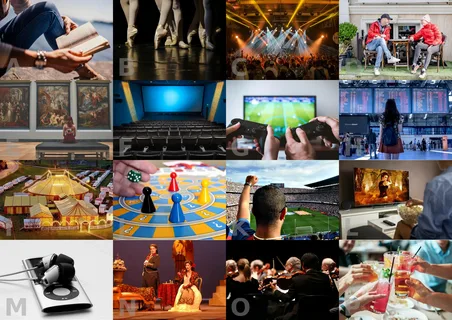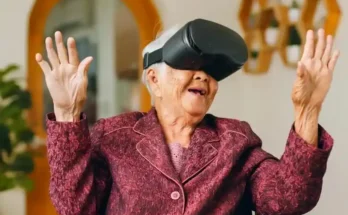In a society that often glorifies hustle and constant productivity, entertainment tends to get dismissed as a luxury, or worse, a waste of time. But if we dig deeper, entertainment is far more than just amusement—it’s a fundamental pillar of human well-being. It recharges our minds, fuels creativity, strengthens relationships, and helps us navigate the stress of modern life.
As workweeks grow longer and digital screens demand our attention 24/7, taking time for genuine enjoyment becomes not just important, but essential. We’ll explore why entertainment matters for everyone—from kids and teens to busy professionals—and how you can mindfully integrate it into your life for a healthier, more successful existence.
Why Is Entertainment Important for Every Person?
-
A Natural Human Need
Entertainment isn’t a recent phenomenon. Storytelling around campfires, dancing to tribal rhythms, theatrical performances in ancient amphitheaters—these are all examples of how humans have always sought joy, narrative, and emotional connection. Entertainment satisfies our innate need for mental stimulation, emotional release, and even a sense of community.
It’s not just about laughing at a comedy or crying during a movie. It’s about engaging with art, stories, and experiences that help us process the world around us. Whether it’s a gripping novel, a music festival, or a sports game with friends, entertainment connects us to a deeper part of ourselves.
-
A Mental Health Booster
Science supports what we instinctively know—entertainment is good for our brains. Studies have shown that engaging in leisure activities can reduce stress, alleviate symptoms of depression and anxiety, and even improve memory and cognitive flexibility.
For example, watching a favorite film can trigger the release of dopamine, the “feel-good” hormone, while attending a live concert or comedy show can decrease cortisol levels, the body’s main stress hormone. Even video games—when played in moderation—can improve problem-solving skills and hand-eye coordination.
-
Fuel for Creativity and Productivity
It might seem paradoxical, but taking time to unwind can actually make you more productive. Breaks that involve some form of entertainment—especially those that engage your emotions or imagination—can spark fresh ideas, prevent burnout, and give your mind the space it needs to innovate.
Great thinkers like Einstein were known to embrace music and daydreaming as part of their creative process. In today’s world, where burnout is a real threat, strategic entertainment isn’t an indulgence—it’s an investment in your performance.
Entertainment in Today’s Busy Life:
-
The Myth of “No Time”
One of the most common excuses people give for avoiding entertainment is, “I just don’t have time.” But let’s be honest—if you have time to scroll aimlessly on your phone or binge-watch videos out of habit, you have time to make space for meaningful entertainment.
The real issue is often not time, but intentionality. We confuse distraction with relaxation. True entertainment—the kind that energizes rather than drains—requires presence and a bit of planning.
-
Micro-Moments of Joy
You don’t need hours of free time to enjoy entertainment. Start small. A ten-minute podcast on your commute, a short story before bed, or dancing to your favorite song while making breakfast can all bring moments of delight into your day.
These micro-moments add up. They create a rhythm in your life that counters stress and monotony, making your daily routine feel less like a grind and more like a composition of experiences.
-
Making Room for Play
Adults often forget how to play. We associate play with childhood, but the truth is, it’s just as important for grown-ups. Whether it’s playing a board game with friends, joining a community theater group, or getting lost in a fantasy novel, play unlocks parts of our brain that work, logic, and structure can’t touch.
And here’s the secret: play doesn’t just help you relax—it helps you live better. It enhances emotional resilience, strengthens social bonds, and gives you the freedom to be fully yourself.
Entertainment’s Role in a Balanced, Healthy Life:
-
Recharging the Mind and Body
Just as sleep repairs your physical body, entertainment heals your emotional and mental self. A funny TV show can lift your mood after a rough day. A live concert can leave you buzzing with energy. A hobby like painting or gaming can keep your mind sharp and engaged.
When you intentionally engage with entertainment that you enjoy, you’re allowing your nervous system to reset. This not only improves your mental health but also helps with physical health—lower blood pressure, better digestion, and even improved immune response.
-
Strengthening Relationships
Shared entertainment experiences build stronger social connections. Watching a movie with your family, going to a concert with friends, or joining a book club offers more than fun—it creates bonding moments. Laughter and shared excitement are powerful social glues.
In a time when digital connection often replaces face-to-face interaction, using entertainment as a tool for real-life connection is more important than ever.
-
Creating a Personal Identity
What we choose to enjoy reflects who we are. Whether you’re a sci-fi fan, a jazz lover, a crossword aficionado, or a skateboard enthusiast, your entertainment choices help shape your personal identity.
This self-expression contributes to confidence and self-awareness. It tells your story. And perhaps more importantly, it reminds you that life isn’t only about goals and deadlines—it’s also about joy, curiosity, and expression.
How to Prioritize Entertainment Without Guilt?
To prioritize entertainment, start by removing the guilt. Leisure is not laziness. Entertainment is not escape—it’s engagement. It’s how we connect with the world and with ourselves in ways that work and routine cannot fulfill.
See it as part of your wellness strategy, right alongside exercise, eating well, and sleeping enough. Because it is.
Block off time in your week for entertainment, just like you would for a meeting or workout. Whether it’s “movie night” on Fridays, an hour of reading on Sundays, or a monthly comedy show, having entertainment to look forward to can make life richer and more balanced.
Use technology wisely. There are apps that help you schedule leisure time, track screen usage, or even recommend entertainment based on your mood and interests.
Conclusion:
In the end, entertainment isn’t what distracts us from life. It’s what reminds us why life is worth living. So laugh loudly, dance freely, play boldly—because your well-being depends on it.
Life isn’t just about survival. It’s about joy, meaning, and connection. Entertainment delivers all three in ways nothing else can. It teaches us empathy through stories, unites us through shared laughter, and recharges us when we’re running on empty.
In a fast-paced world, making time for entertainment is not a sign of weakness—it’s a declaration of self-worth. It’s a commitment to live not just efficiently, but fully.




